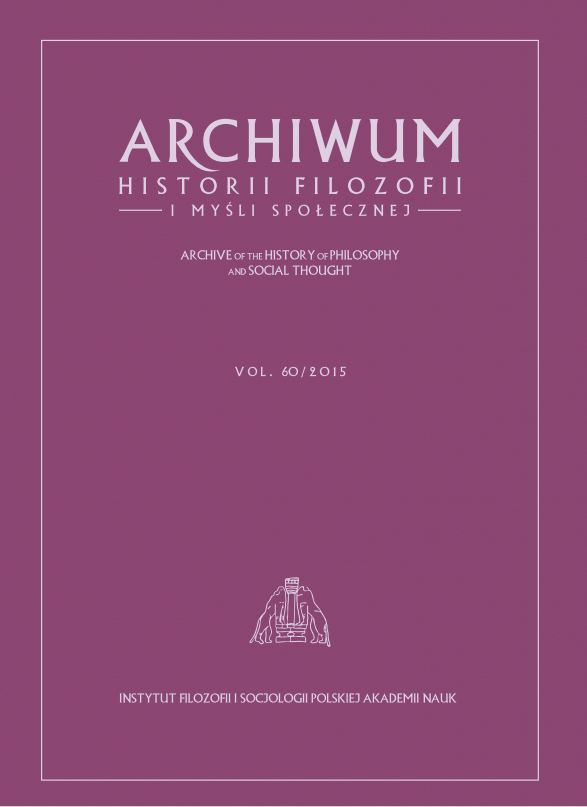Intuicjonizm krytyczny neookcydentalisty Borysa Jakowienki. Zarys problematyki
Critical Intuitionism of Neo-occidentalist Boris Jakowienko᾽s. Outline of the Topic
Author(s): Barbara CzardybonSubject(s): Philosophy, History of Philosophy
Published by: Instytut Filozofii i Socjologii Polskiej Akademii Nauk
Keywords: Boris V. Jakovenko; Russian neo-Kantianism; „Logos”; neo-occidentalism; transcendental pluralism; Marburg school; phenomenology; psychologism
Summary/Abstract: This article is an attempt to show the theory of transcendental pluralism of Boris V. Jakovenko (1884–1949), one of the most important Russian representative of neooccidentalism. There is a synthesis of specific themes of Hermann Cohen’s neo-Kantianismand Husserlian phenomenology in the Russian philosopher’s system; he pays great attention to the two aspects of philosophical reflection, i.e. to scientificity and immediacy of a contemplation of Being (Сущее). Jakovenko distinguishes four kinds of cognition: sensual, emotional-volitional, scientific and philosophical. According to him the aim of philosophy consists of fulfilling the condition of “critical” scientificity – “science of science”. The only subject of philosophical research is Being as Being, i.e. Being in the entire richness of all its moments, in all of its manifestations. Pluralism of philosophy should correspond to the diversity of Being, but pluralism of philosophy, which is reflected in an intellectual contemplation, is a result of a long evolution of a philosophical reflection. The reflection passes through three developmental cycles: cosmism, gnoseologism and transcendentalism. Transcendental pluralism postulated by Jakovenko will be “the living method”, versed in depsychologization, denaturalization and desubstancialization of Being.
Journal: Archiwum Historii Filozofii i Myśli Społecznej
- Issue Year: 60/2015
- Issue No: 60
- Page Range: 205-222
- Page Count: 18
- Language: Polish

